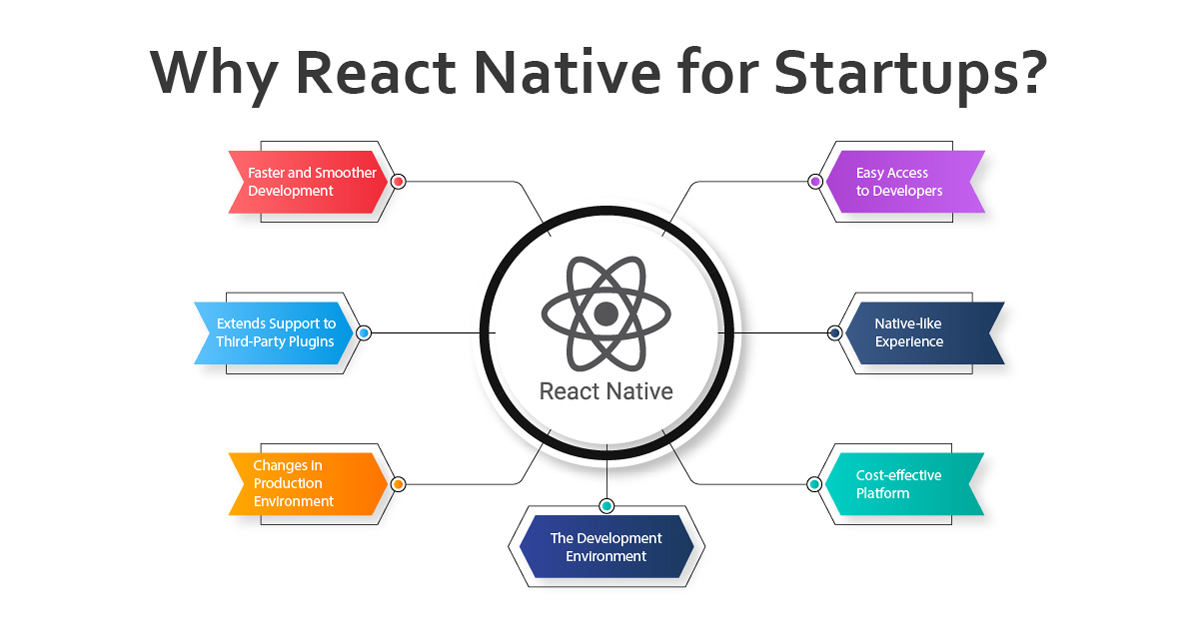The Answer to Cross-Platform Business App Success - React Native
Published on 11/03/2024
The Answer to Cross-Platform Business App Success - React Native
An app that works like cheese on both Android and iOS is a headache only professional and experienced app developers have faced.
Developing a successful cross-platform mobile app for your business or brand is a smart decision that sounds cool until you struggle to find the best cross-platform developers. But, once you find the right (react native) cross-platform app developer, it can greatly increase your apps and business’s user reach and engagement and make the users fall in love with your app.
But, it's not that easy and also obviously not rocket science if you hire the right React Native developers. The popularity of a mobile app rides on a variety of elements, especially when catering to both Android and iOS customers. To ensure that your app meets the highest standards, pay particular attention to certain factors that contribute to a smooth and enjoyable user experience.
What Makes an Amazing App?
1. User Interface (UI) and User Experience (UX):
A. Consistency
B. Platform-specific Design
2. Performance:
A. Speed
B. Resource Utilization
3. Functionality
A. Feature Parity
B. Platform-Specific Features
4. Compatibility
A. Device Compatibility
B. OS Versions
5. Security:
A. Data Protection
B. Platform Security Guidelines
6. Testing:
A. Cross-Platform Testing
B. Automated testing
7.Updates and Maintenance:
A. Timely Updates
B. Platform-Specific Updates
8. App Size and Load Time:
A. App size
B. load time
9.Accessibility:
A. Inclusivity
B. Platform-Specific Accessibility Features
10.Feedback and Ratings:
A. User Feedback
B. Ratings
Now that we know what your app needs to have to outperform, compete, and be loved by both iOS and Android users, let's see what could help you create such an app.
Which One Should You Consider?
When it comes to cross-platform app development, various cross platform frameworks and tools have gained popularity due to their utility in creating apps that can run on multiple platforms.
Some of the widely regarded options for cross-platform app development:
Crafting Dynamic Digital Solutions - Hiring PHP Developers for Specialized Solutions
1.React Native
2.Flutter
3.Xamarin
4.Ionic
5.PhoneGap / Apache Cordova
6.Vue Native
7.NativeScript
8.Unity
How Can React Native Drive Cross-Platform Success for Your Business App?
Highlight: Cross-Platform Compatibility in React Native
React app development is one of the most appreciated and prioritized development for cross platform frameworks among developers simply because of its numerous benefits and capabilities. One of the most appropriate benefits is that it may be used during both development and post-development customization. Cross-platform compatibility is a key feature of React Native, which has contributed greatly to the cross platform framework's popularity in mobile app development.
Advantages React Native provides for building a successful cross-platform UI experience app.
1. Unified Codebase: React Native allows developers to write the majority of their codebase in JavaScript or TypeScript. This shared codebase allows developers to write code once and deploy it across iOS and Android devices. The hot-reloading function enables real-time code changes without restarting the application, increasing app development speed.
2. Efficiency and Cost-Effectiveness: A unified codebase requires only one implementation of modifications or updates, streamlining the app development process and decreasing the resources necessary to manage distinct codebases.
3. Accelerated Development Time: Nowadays, time is the heart of any business. Thanks to React Native cross-platform compatibility, developers can work on both the iOS and Android versions of the app at the same time, resulting in synchronized updates and a faster time-to-market. This especially gives the brands an upper hand in dynamic and competitive marketplaces.
4. Consistent User Experience: India, for example, has comparable users of iOS and Android users, which makes maintaining a consistent user experience is critical for the success of any mobile app. React Native's cross-platform approach makes it easier to create UI components that look and feel native on both iOS and Android devices, resulting in a more consistent user experience.
5. Single Development Team (A boon for startups): A cross-platform approach allows businesses to hire a single app development team that is fluent in JavaScript or TypeScript, rather than keeping separate teams for iOS and Android development. This consolidation saves significant amounts of money and time while also improving team collaboration and knowledge exchange.
6. Code Reusability: The ability to reuse a significant portion of the codebase is an important feature of React Native. Professional React Native developers can use the same components, logic, and frameworks, eliminating redundancy and lowering the likelihood of conflicts across iOS and Android versions.
8. Simplified Maintenance: Cross-platform development simplifies maintenance tasks. Updates, bug fixes, and feature additions can be applied universally, decreasing the difficulty of managing several codebases. Shared business logic and codebase facilitate maintenance and updates.
The CORE TECHNICAL benefits that React Native brings to developers for building a successful app
A successful cross-platform business app can only be developed by experienced developers who are familiar and comfortable with the cross platform frameworks. React Native provides multiple such benefits, allowing skilled React based app developers to create an incredibly seamless app.
Virtual DOM for Performance Optimization: React Native's performance
optimization strategy includes the use of a virtual DOM. The Virtual DOM serves
as a middleman between the app's UI and the device UI, reducing direct
manipulations of the native UI. This strategy greatly enhances rendering
performance.
Native Module Creation: Developers can write native modules in Swift (for iOS)
and Java/Kotlin (for Android). This feature provides access to platform-specific
functionalities, ensuring that React Native applications may adapt to the unique
requirements of each platform.
Third-Party Module Integration: React Native allows for the integration of third-party native modules, enhancing the functionality of apps. This extensibility allows access to a wide number of native APIs and libraries, which proves to be very helpful for designing cross-platform apps.
React Native CLI and Expo: Developers can initiate and manage projects using either the React Native CLI or Expo. Expo, in particular, improves the React Native development cycle, providing a more seamless experience for developers.
In the simplest terms, React Native's cool crossover magic stems from friendly chats between JavaScript and native code, the fast Virtual DOM, special native powers, JSX for easy UI talks, versatile core components, quick changes with Hot Reloading, a fondness for third-party extras, and useful tools like React Native CLI and Expo. These technical approaches enable experienced react native developers to create amazing apps that work like cheese on both iOS and Android devices.
Listening...





